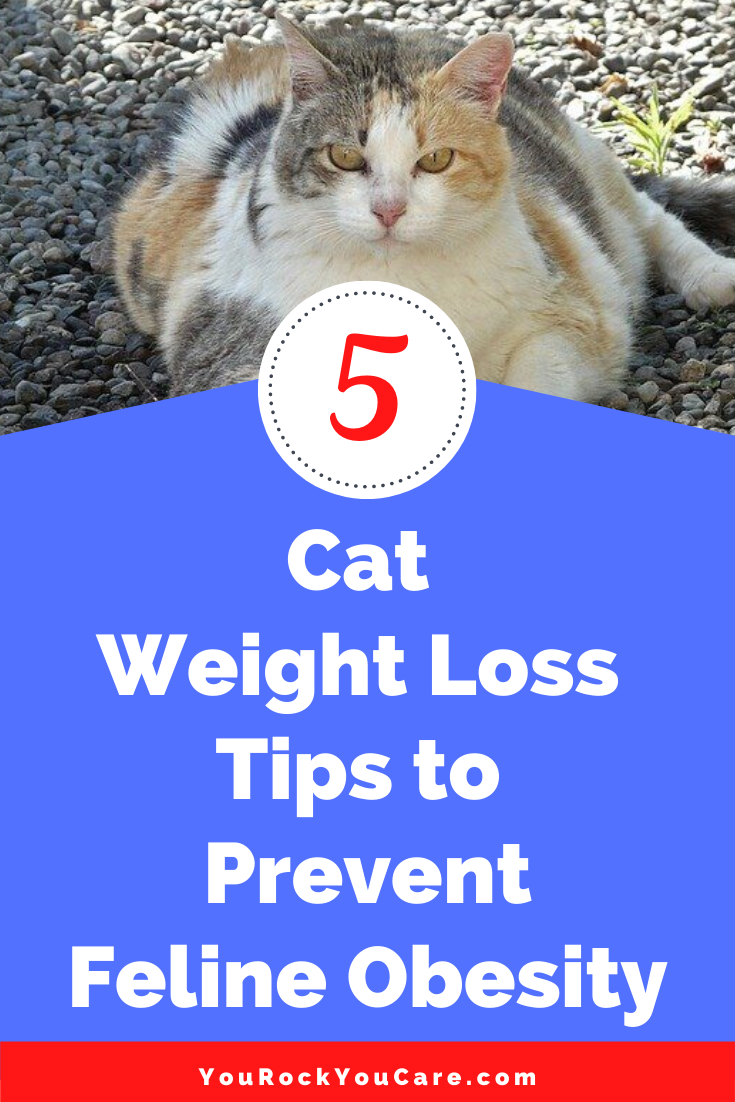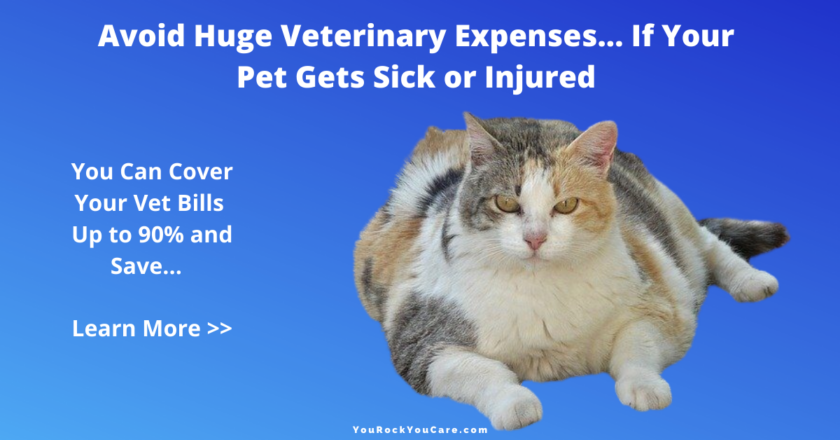An obese or overweight cat can look cute. However, feline obesity can lead to serious health problems and premature death for your cat.

There are many health problems associated with excess weight. So, having an obese or overweight cat can lead to huge veterinary expenses. What’s even worse? Preventable obesity-related diseases can lead to unnecessary pain and suffering for your cat as well as premature death.
Do You Have An Overweight Cat? Common Health Risks for Feline Obesity That Most People Don’t Know About
Feline obesity is an epidemic in the United States.
According to the Association for Pet Obesity Prevention, in 2018 veterinarians classified more than 100 million dogs and cats as overweight or obese in the United States, up from 80 million five years ago. The majority of cats and dogs are overweight or obese — 59.5% of cats and 55.8% of dogs.
What are health risks that can affect an obese or overweight cat?
Obesity can make cats more likely to develop diseases and cut their life short. Even being moderately overweight can reduce a cat’s life expectancy. Obese or overweight cats can have 5-10 years less life expectancy compared to healthy cats.
For a domestic cat with an average life expectancy between 12-15 years… losing 5-10 years is a lot of time they could miss out on.
These are the most common health problems for obese and overweight cats:
- High blood pressure
- Osteoarthritis
- Diabetes
- Asthma
- Heart failure
- Skin conditions
- Liver disease
- Gall bladder disorder
- Immobility of spine
- Chronic kidney disease
- Different types of cancer
- Heart and lung diseases
- Bone and joint diseases
- Bladder and urinary tract disease
What’s even worse than having preventable excess weight-related diseases for your cat?
Obesity-related diseases can lead to unnecessary pain and suffering for your cat. In addition, you may have to deal with the huge emotional toll of losing your beloved pet prematurely.
If You Have An Obese or Overweight Cat, You May Have to Deal With Huge Veterinary Expenses
There are many health problems associated with excess weight. So, having an obese or overweight cat can be very costly.
According to pet insurance provider, Nationwide, pet obesity has increased for the eight consecutive years in the United States.
Nationwide reported that nearly 20% of pet insurance claims in 2017 were for diseases and conditions related to pet obesity. Policyholders filed over $69 million in veterinary expenses for health problems associated with excess weight for pets.
Of course, people who did not have pet insurance had to pay for veterinary expenses from their own pockets.

What Are the Signs That You Have An Obese or Overweight Cat?
Your veterinarian can help you determine if your cat is overweight or obese. The following signs can also show that your cat has a weight problem:
An overweight cat typically has fat deposits on the hips, chest and tail base. Ribs usually are hard to feel underneath the fat deposits. Your cat’s abdomen will usually sag when viewed from the side due to belly fat.
An obese cat typically has large fat deposits over the chest, back, hindquarters and tail base. Ribs usually are hard to feel underneath the fat deposits. Due to belly fat, your cat’s abdomen will usually sag prominently.
5 Cat Weight Loss Tips to Prevent Feline Obesity
By helping your cat maintain a healthy weight, you can prevent it from dealing with unnecessary suffering from diseases associated with being overweight or obese. By preventing feline obesity, you can help your cat live longer.
1. Get a vet checkup for your cat to rule out any underlying condition that might be causing weight gain. If your cat does not have serious health issues, your veterinarian can recommend a healthier, lower calorie cat diet. You can also get commercially-prepared healthy, cat weight loss diet food recommended by pet nutritionists.
2. Cut out cookies, cakes and other people food, especially fast food. For a small cat, a fast food fish burger can be the equivalent of few days worth of calories. What’s even worse is that fast food is loaded with unhealthy fat and refined carbohydrates.
3. Maintain good portion control. To help your cat slim down, provide a smaller cat food portion recommended for your pet’s ideal weight… not its current weight. Automatic cat feeders can help you maintain healthy portion control for your cat.
4. When your cat is good — and not behaving like an unpleasant diva — use toys or play instead of giving calorie-loaded treats as rewards.
5. Help your cat become more active. Get toys that will keep your cat active for at least 20 minutes a day. You can help your pet burn extra fat by letting it play with cat toys twice a day. As it does in humans, exercise-induced stress reduction can also help decrease your cat’s belly fat.
